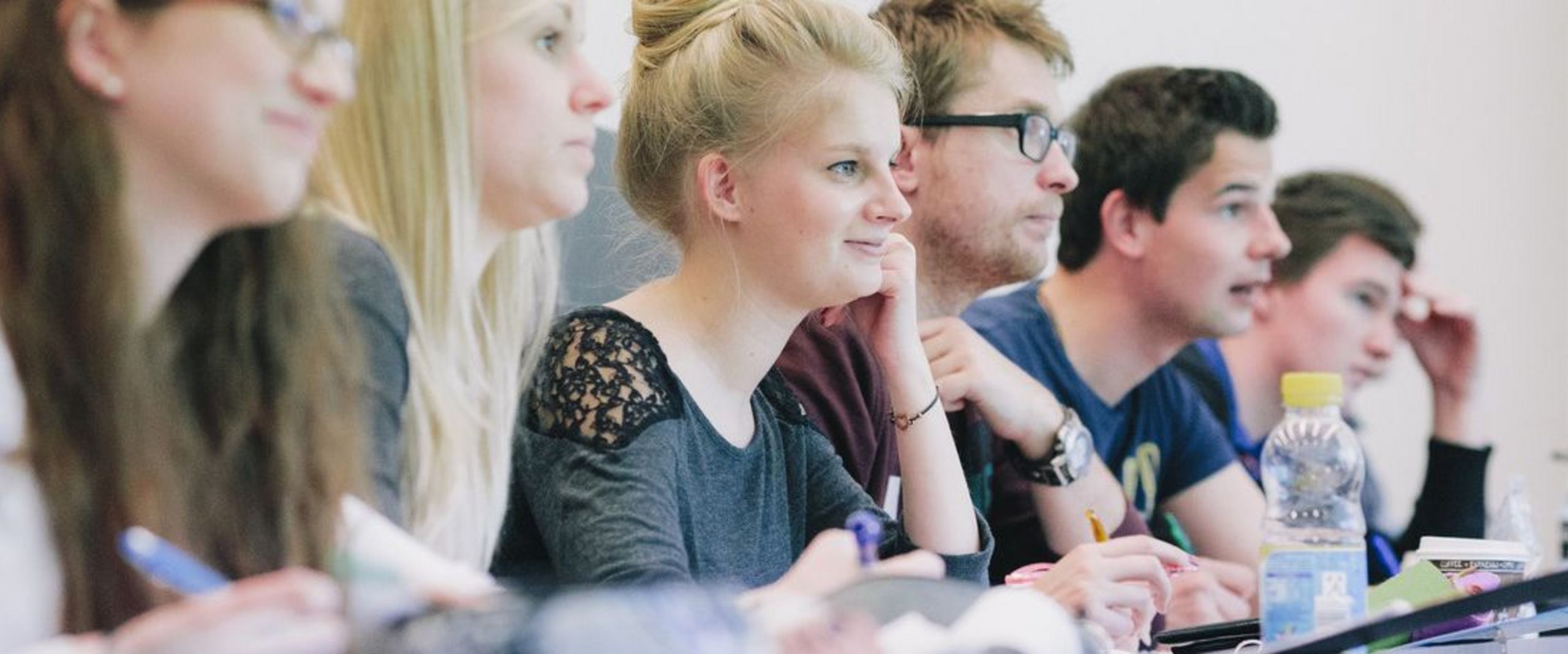
Faculty 1
„Hello, and a very warm welcome to the Faculty of Business and Economics! Management. Strategy, leadership, HR, finance, marketing ... companies all over the world have to address questions from the cosmos of economics – and that is what we prepare you for!“
Prof. Dr. Peter Laudi Dean of the Faculty of Business and Economics
Studying at eye level: Our students learn in small groups with personal contact to lecturers.
Internationality is all around: Worldwide contacts are an integral part of our degree programmes as well as our research activities. Our offer attracts numerous exchange students to Bremen every year.
Our ties to the region: Through our intensive cooperation with companies and organisations from Bremen and the surrounding area, we provide impetus for regional development.
Cooperative degree programmes have a two-track structure: students have an employment contract and receive a vocational training in a company or organisation alongside their studies, which then end with a certified professional qualification in addition to a Bachelor's degree. Moreover, students are paid a salary from the training company during their studies.
In keeping with a university of applied sciences, most of our professors and lecturers have relevant practical experience and impart professional know-how as well as social and methodological skills at a high academic level. Studies are organised in innovative teaching and learning formats with small groups. Other strengths include an enviable supervision ratio and intensive contact with your lecturers and professors.
The pivotal focus of studies is on preparing students to apply their newly acquired competences in practice. In projects and practical phases as well as in final theses, students have many opportunities to try out their new knowledge on real issues. Our cooperative degree programmes are particularly closely linked to practice: while studying for their Bachelor's degree, students simultaneously receive practical and application-oriented training in a partner company.
The traditionally close relationship with partner companies offers a number of interesting linkages to the degree programmes: for example,
Opening up new horizons is an integral part of learning and working at HSB. In this context, we see the cultural diversity on campus as an enrichment and the variety of different perspectives as a source of inspiration.
We live internationality in many dimensions – a significant proportion of our students have an international background and nationality, have acquired their university entrance qualification abroad before coming to Bremen to study, visit the faculty for their semester abroad, or in the context of international project weeks – or to complete an internationally oriented Master's programme at the IGC.
Our degree programmes have a stay abroad component as a compulsory or voluntary option; courses at HSB are held in eight languages; our professors bring their international experience and activities into teaching; together with colleagues at partner universities, we teach in international alliances and conduct research in international projects.
With cooperation agreements in place with more than 150 partner universities, we have a broad network at our disposal. Teaching at our faculty is marked by its strong international orientation. More than thirty years ago, our faculty was one of the first in Germany to offer international degree programmes. We live this long tradition in our international networks. Our students are part of this international community. They meet regularly in the home countries of our partners and on our campus to learn and research together on current topics.
This is the guiding principle of a faculty that encourages not only the professors and research assistants but also the students to engage in a wide range of research activities.
